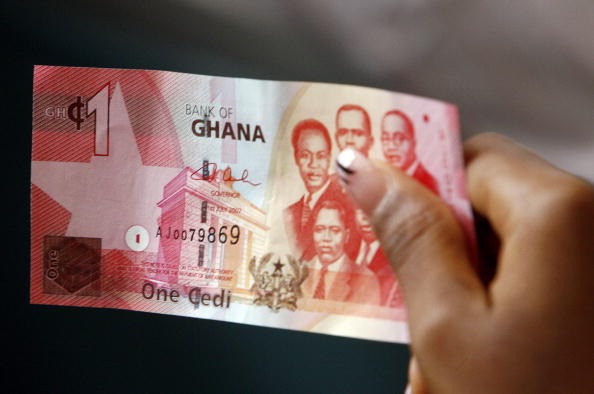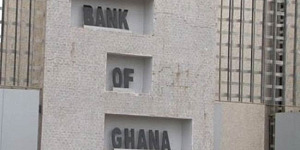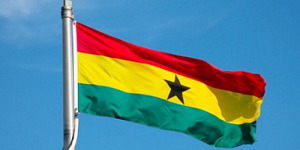Ghana's central bank lowered its monetary policy rate by a further 200 basis points to 18.0 percent, saying inflation is continuing to decline amid moderate price pressures, and it is on course to meet the its inflation target within the forecast horizon.
It is the Bank of Ghana's (BOG) first rate cut this year, but it has now cut the policy rate by 800 basis points since beginning an easing cycle in November 2016.
In January the BOG noted emerging pressure on underlying inflation in the last two months of 2017 so it kept the policy rate steady to ensure it reaches its inflation target this year.
But in today's statement, the BOG's monetary policy committee said its current inflation forecast provided scope for a rate cut that would translate gains in disinflation to the market and "reinforce the fiscal consolidation process by easing the burden of interest payments on the budget."
Ghana's headline inflation rate rose slightly to 10.6 percent in February from 10.3 percent in January but BOG said the rise in February came from higher oil prices and the overall trend from 2017 of falling inflation had continued this year.
The bank's main measure of core inflation, which excludes energy and utilities, dropped to 11.3 percent in February from 12.6 percent in December and inflation expectations by businesses, consumers and the financial sector showed that expectations were anchored toward the medium-term inflation target of 8.0 percent, plus/minus 2 percentage points.
Prices of Ghana's main exports, such as gold, cocoa and crude oil, rebounded somewhat in the first two months of this year, and data and surveys show that the growth momentum seen in 2017 was continuing this year.
Interest rates on the money market are migrating downward but the recovery of private sector credit is still slow, BOG said, with private sector credit expanding by only 1.2 percent in real terms in January, down from 2.1 percent in January last year.
Ghana's economy grew by an annual rate of 9.3 percent in the third quarter of last year, up from 9.0 percent in the second quarter, and BOG said growth prospects for 2018 remain positive, supported by crude oil production, a gradual recovery in the non-oil sector and favourable sentiment.
The government's budget deficit is also continuing to narrow and fell to 6.0 percent of Gross Domestic Product in 2017 compared with a target of 6.3 percent, helping total debt decline to 69.8 percent of GDP in 2017, down from 73.1 percent of GDP in December 2016.
Domestic debt amounted to 66.7 billion Cedi while external debt was 75.8 billion, with the maturity profile showing an increase in longer-dated instruments.
Ghana's trade balance was also in surplus in the first two months of this year due to higher oil exports while gross international reserves dropped to US$6.9 billion as of March 20, down from $7.6 billion in December 2017 due to coupon payments on a sovereign bond and energy sector payments.
The foreign exchange market has also remained calm in the first quarter of this year, BOG said, with the Cedi appreciating by 0.2 percent against the U.S. dollar in the year to March 23 compared with a deprecation of 5.0 percent in the same period of 2017.
The cedi was trading at 4.40 to the dollar today, up 3.2 percent this year.





















































